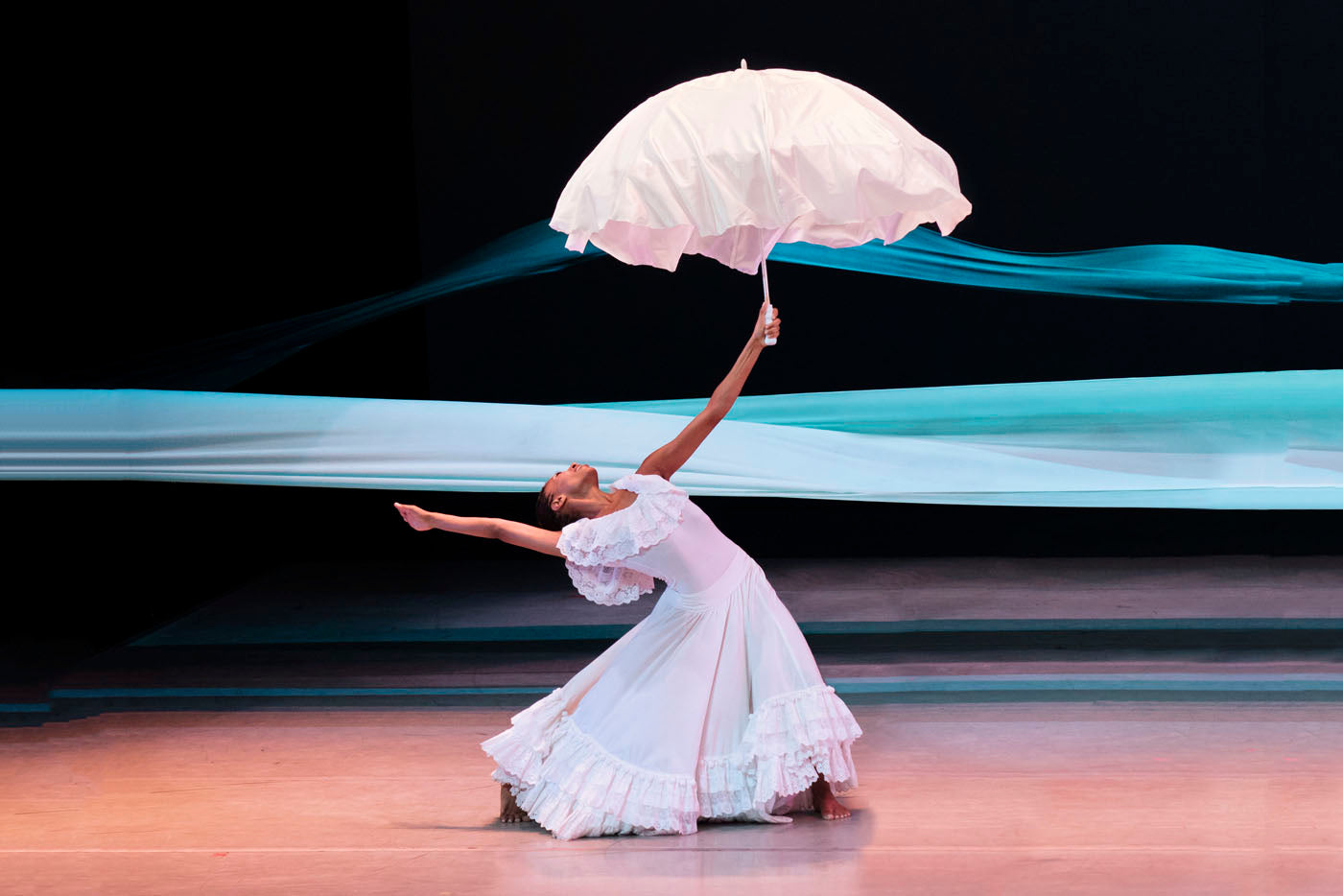Alvin Ailey are presenting three varying programmes of work at Sadler's Wells, giving their London audience a select taste of their vast repertoire. While the first presents a somewhat mixed bill, the dancers remain at the top of their game.
Choreographer Rennie Harris has created three works for the company and his 2015 creation “Exodus” opens the bill. The dancers lie scattered, face down upon the stage, a woman grieving over one lifeless form, a man with rippling muscles running in slow motion. From these dark beginnings comes an unexpected development. A scene of seeming grief and destruction transforms into a work filled with images of resurrection and hope—and it's presented not through Ailey's traditional blend of contemporary and African dance but through hip hop.
To a heavy bass line of house and remixed gospel, the versatile dancers of this company show they are just as comfortable with the quick footwork patterns and urban energy of hip hop as they are executing a perfect lateral T.
Slowly the dancers congregate to form a kind of angelic host, changing from their everyday clothes to costumes of pure white. Their movements have both attack and fluidity, and through them they appear to strive for this heavenly attainment, assisting each other in juddering moments of uncertainty. The narrative may be loose but the spiritual sense of this work is clear; and it offers a compelling and energetic opening to the programme.
Robert K. Brown's 2013 work “Four Corners” sees a return to Ailey's fusion of contemporary and African styles. The dancers filter in and out of the work, the women clothed in patterned dresses and head wraps, a palette of greys and purples. The familiar steps of a classical-contemporary vocabulary—attitude turns and high releases—combine with the supple, rolling upper body movements of African dance; the dancers' small shuffling steps fuelled by a rebounding elasticity.
“Four Corners” is not quite a stand out work, but it's infectious rhythms and perpetual motion draws you in. It's a pleasure to watch a company of dancers gifted with both musicality and athleticism and their joy in their movement radiates though their bodies.
The pas de deux from Christopher Wheeldon's “After The Rain,” originally created for New York City Ballet, is a soft, melting duet set to the tinkling tones of Arvo Pärt's Speigel im Spiegel. The last time I saw this duet performed was by Marianela Núñez and Thiago Soares as part of a Royal Ballet triple bill. With Núñez and Soares there was a sense of being onlookers to something deeply personal—a treasured but past connection between two people. It was a tender yet sorrowful duet, and their movement seemed to melt at each step.
On this occasion, the delicate choreography of Wheeldon's pas de deux didn't have quite the same effect. On the statuesque bodies of its dancers (Akua Noni Parker and Jamar Roberts), the technically challenging movement, although expertly performed, at times felt stilted and lacked the sensitivity required to match Pärt's gentle score. While the closing moments found a sense of the intimacy suggested by Wheeldon's choreography, this time around the duet's relationship wasn't quite as convincing.
As is Ailey tradition, this first programme of the Sadler's season closed with the much-loved “Revelations.” First performed in 1960, this series of short numbers set to traditional African and gospel songs has become a staple of the company's repertoire. From the technical challenge of a slow adage duet, performed by its dancers (Linda Celeste Sims and Glenn Allen Sims) with an incredible display of strength, to the exhilarating male trio set to the racing rhythms of “Sinner Man,” “Revelations” still has an irrepressible energy that's hard to resist.
Reverberations of African-American history and culture run through this work, particularly in “Wade in the Water” with its sense of baptismal celebration and white frilled dresses and the rousing closing number, “Rocka My Soul.” As the women enter with their low stools and hand-held fans, clothed in bright yellow dresses, there's a sense that you've stepped back in time. From their wordless chatter, conveyed through the fluttering conversation of their fans, to the joyful, praise-filled dancing of the company, it's a charming and uplifting piece. The company seem at home in this work and they dance with a joie de vivre that fills the theatre. Even a reserved London audience can't quite resist clapping along.
In the hands of this dynamic company “Revelations” remains a highlight of the Ailey programme. However it has a strong contender in Harris' “Exodus,” and with a company of dancers as versatile as this, there's sure to be much more to look forward to throughout the rest of their tour.




comments